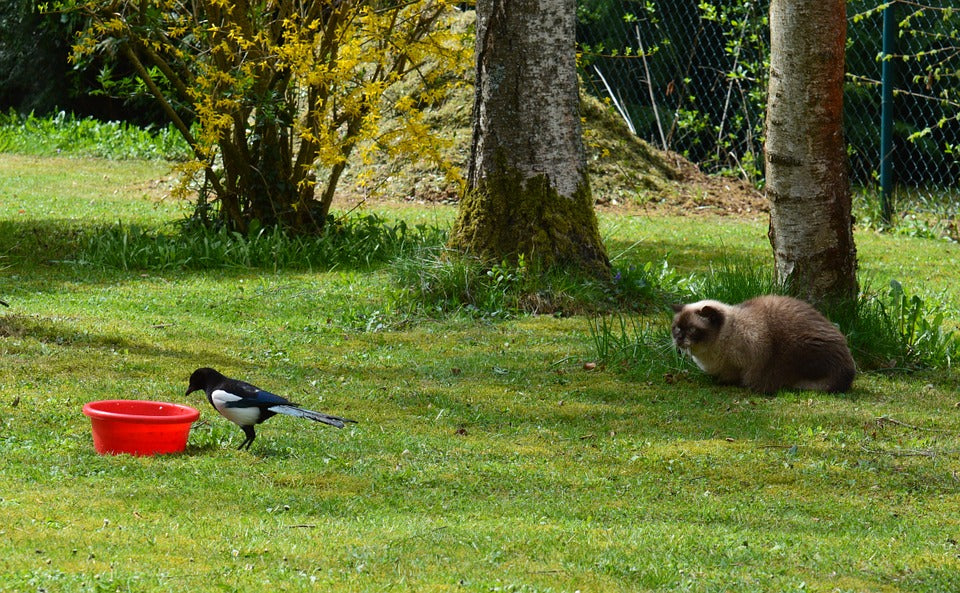Offer
Provide additional details about the offer you're running.
Provide additional details about the offer you're running.
Provide additional details about the offer you're running.

We spend countless hours creating our very own oasis for birds in our backyards all year round and as our local flocks begin to grow there are a few items we should all keep in mind to keep our feathered friends safe from harm.
With all the birding activity going on in your backyard you are increasing the likelihood of attracting predators too. It is common amongst birders to replace their lawns with trees and shrubs that are more bird-friendly. However, you may be concerned that you are also attracting nest predators to your area.
Common predators of backyard birds include raccoons, birds of prey, snakes, and squirrels. But, believe it or not the number one backyard bird predator is the house cat. Cats kill more wild birds than any other predator, presenting a difficult dilemma for feline lovers who also want to feed the birds in their own backyard.
Bird feeders pose a special problem where cats are concerned. Our backyard bird companions often toss seed from the feeders, which undoubtedly help our ground feeders, but can make them easy prey for all types of backyard predators.
How to avoid this little problem?
A wide tray to catch the seed mounted under the feeder will work well if it is high enough that the cats or other predators cannot reach it, thus, keeping the birds safe from harm. Placing nesting boxes in areas away from areas common to predators is another way to prevent predation. Because some predators are prevalent everywhere, we always recommend protecting your nest boxes with easy-to-use predator guards.
All that being said, amazingly enough, researchers have found that even though your backyard may be an oasis for birds it is not attracting any more predators than your neighbours. In trying to establish a relationship between the amount of woody vegetation and common nest predators, bird-friendly landscaped yards were not attracting predators any more than the next.
Still, if your backyard is a birding oasis, you should still do your best to protect your feathered friends. You can find everything you need (and more!) in-store, so stop in for a chat and together we can do our very best to keep your birds on your feeders and out of harm's way.
High Quality Blend